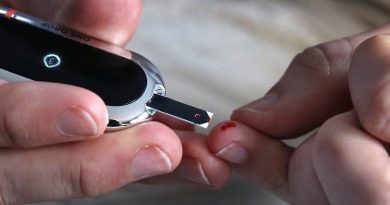My experience of living with bipolar disorder

All babies have blue eyes at birth, but mine turned hazel. As long as he lived, my dad never knew that we actually did have something in common. We both had bipolar disorder.
When I was a kid, my mom told me that my dad had “manic depression.” To me, that brought to mind a pot of boiling water with the lid vibrating and steam escaping, ready to explode at any moment.
My dad would spend thousands of dollars on Rolex watches and high-end stereo equipment and then lock himself in his bedroom for days. One day, he would affectionately tease me until I giggled. The next day, he would angrily snap at me for no reason.
He had outbursts that terrified me. I exhausted myself trying to make sense of his actions, always taking them personally. I was the girl with daddy issues, which undiagnosed bipolar disorder made more complicated.
Growing up with bipolar disorder
I have always been outgoing. My first word was not “mama” or “dada,” it was “hi.” As soon as I could talk, I said “hi” to everyone I met.
In elementary school, I was full of hyperactive energy and had a hard time sitting still. My teachers often sent me to the principal’s office because I talked too much in class. In high school, I filled my schedule with extracurricular activities and social events, leaving barely enough time to do homework.
In college, not only did I have a full schedule of classes and a job, but I also threw myself into activist groups and partied every night of the week. I was constantly making new friends, and I slept with more people than I could count.
My thoughts would race from one thing to another. I swung back and forth at the mercy of my impulses. I jumped between relationships, apartments, jobs, and even sexual identities. I was riding on a runaway locomotive that was going at 120 miles an hour with no sign of stopping.
In my senior year of college, my mom left my dad. He had been buying guns and shooting holes into the ground. He would drive for hours to cheap motels far away and call her with threats of suicide. He had taken pills and had his stomach pumped.
He washed and dried my mom’s work suits in the washing machine, shrinking them and hanging them back up on the same hangers. I imagined little doll-sized suits, wrinkled and mangled beyond recognition, and my dad — a deranged lunatic — standing over them.

It is ironic that it took my dad’s death for me to finally understand him. It was my reaction to his suicide that led to my bipolar diagnosis.
By accepting my diagnosis, I was able to make some sense of my dad’s actions, realizing that they were neither my fault nor his.
I can now see that shoplifting just for the high, sleeping with dozens of strangers, and attempting suicide with pills and wine were symptoms of my mental illness. My dad’s outbursts, impatience, irritation, and even suicide were the exact same thing, just with a different face.
Memory flashes of both his and my actions remind me of this ongoing epiphany, which led me to reconcile all the scary memories of my dad with my discoveries. My diagnosis taught me how to understand and forgive both my dad and myself.
Where I am now
I am now a survivor and an advocate and am currently writing a book, called Daddy Issues: A Memoir, about my experiences. I hope that by sharing my story, I can give hope to the millions of people whom bipolar disorder and suicide have affected.
“I have bipolar, but it does not have me. I never knew what to expect with my dad, and I know that every day with this illness is different, but I am a resilient person.”
I have made it through several major manic and depressive episodes and have come out on the other side. I have also captured a new kind of confidence, which is not the false, intoxicating delusions of a manic mind but a real sense of being O.K. with myself. I struggle all the time, especially with seductive hypomania, but I just do my best and try to set healthy limits for myself.
Someone once asked me whether I would get rid of my bipolar disorder if I could. My answer is no. No matter how I have arrived at the point where I am now — whether it is due to my bipolar or my personality — my past has made me into someone I am proud to be today. I am living proof that a bipolar diagnosis is not a death sentence. Rather than just surviving, I have thrived.
I have obtained two bachelor’s degrees in English and graphic design, NPR’s “All Things Considered” broadcast an interview with me, and my artwork features in national and international art museum exhibits and a college art school textbook.
I have been working in the film industry for over 13 years and have more than 33 movie and television credits to my name, as well as two Emmy nominations and an Art Director’s Guild Award. I also have a blog, in which I share my stories about living with bipolar disorder.
And yet, for all of my professional achievements, I am most proud of my recovery, which is still my hardest-fought battle.
Source: Read Full Article



